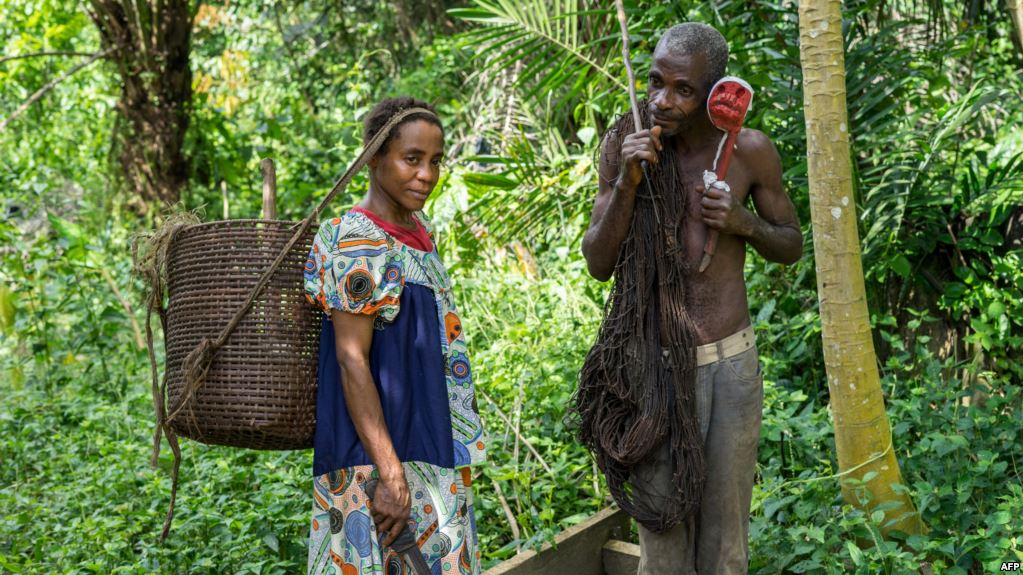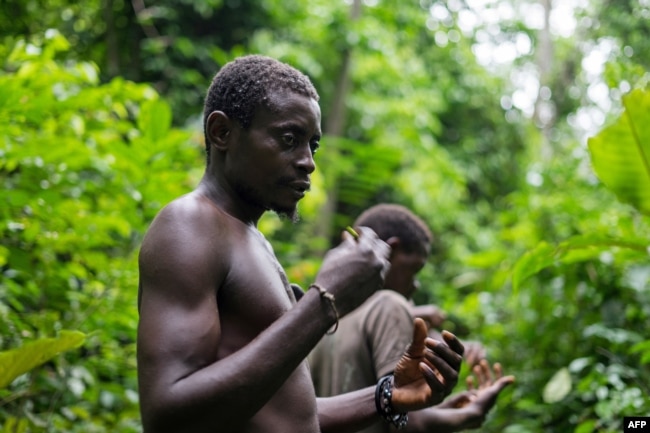La Republique: Pygmies Protest Destruction of Forest Resources
Baka Pygmies in eastern Cameroon are protesting the destruction of their forest habitat by European and Chinese logging companies. The Pygmies say the logging companies reap huge profits and leave little in return.
Forty-five-year old Paul Ongwana talks through a bullhorn as he moves from one Baka Pygmy settlement to the next in Magou village, 45 kilometers from Cameroon’s eastern town of Lomie. He is urging locals to join him in trying to keep logging company trucks out of their village.
Ongwana said residents are angry because the forest which makes up their history, culture, and livelihood is being destroyed.
He said their village has grown from barely 25 Pygmy families to more than 200 within one year. But it still lacks schools, hospitals and recreational facilities that logging companies promised to construct 20 years ago when they first started exploiting the forest. He says many Chinese come to their villages just to exploit them.
Hundreds respond to Ongwana’s call and dance in protest on the only road in their neighborhood. Villagers say logging companies constructed the road two decades ago to transport wood out of the forest. The only school in the village sits by the road.
Village chief Rodrique Alama said they will block the road until their message gets through to the government of Cameroon.
He said logging companies take advantage of the population’s innocence. They refuse to give them information about the quantity of wood and forest resources the government authorizes them to exploit. He says trees as old as 100 years are harvested within seconds, and none are planted, while the animals and natural resources the people live on are being destroyed.
Baka Pygmies are an ethnic group spread through rain forests in Cameroon, Congo, Gabon and Central African Republic. They are very short people with most adults standing less than one and a half meters tall.
The destruction of the forest resources which Pygmies depend on is breeding poverty and ill health, say villagers. They have lived off the forest’s wild animals and fruits for thousands of years and use its natural herbs as medicine.
Logging companies contacted by VOA declined requests for interview. But one company, China Wood, said it paid up to 20 percent of its income from logging as a royalty after paying taxes.
Cameroon’s Ministry of Forestry and Wildlife gives permission for companies to cut trees in the forest, under the stipulation that at least 10 percent of the income goes to local communities.
Local government divisional officer Isidore Tchoffo says not all of the money is spent on the Baka Pygmy community, but authorities stand ready to support them.
But he said the Baka Pygmies should show that they will make good use of the infrastructure by sending their children to the only school they have and farming on the vast fertile lands around them. He said when Baka Pygmies start doing that, the state will provide more schools, hospitals and the social services they are requesting.
There are an estimated 75,000 Baka Pygmies living in the rich forests of eastern Cameroon. Rights groups say indigenous forest peoples like the Baka are among the most exploited in the region.
Culled from the VOA






